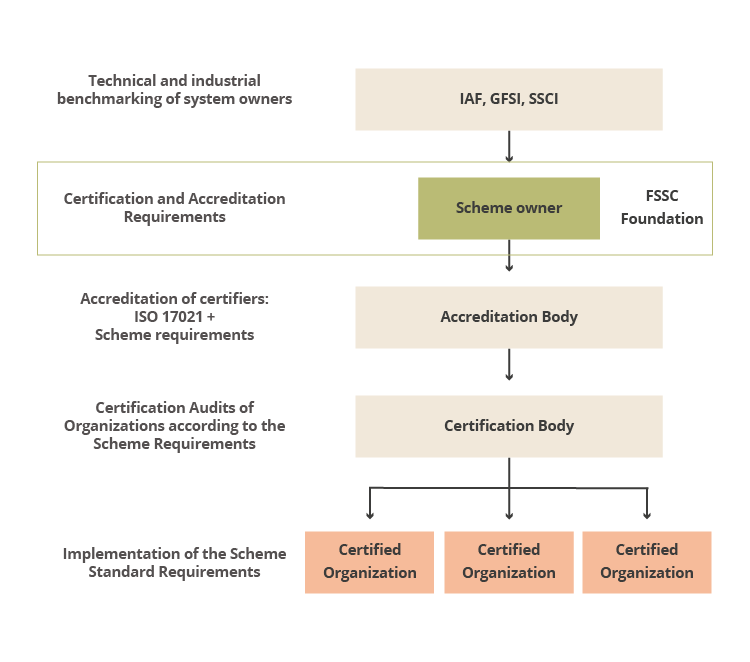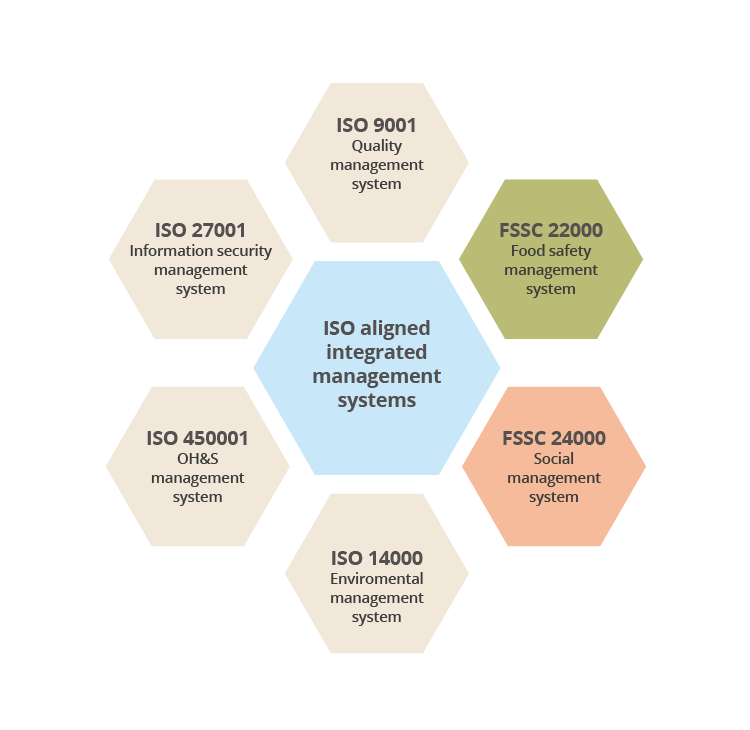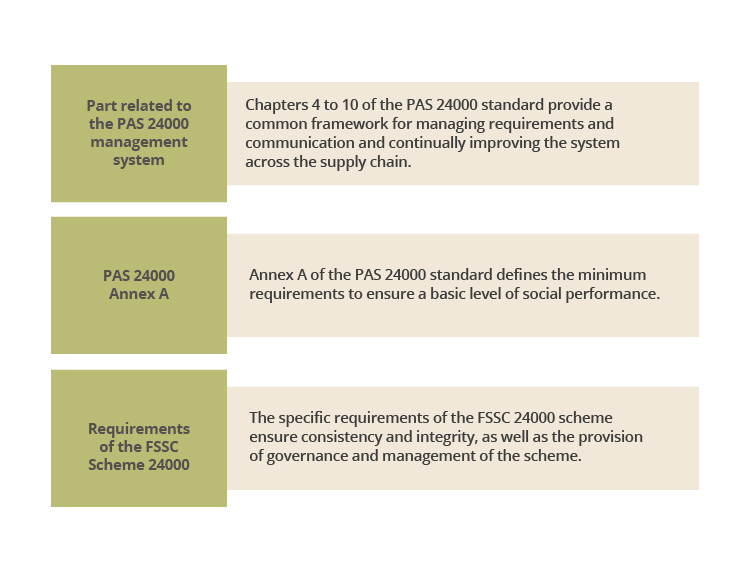
FSSC 24000 international traceability.
Throughout the years, labor’s evolution has been a great driver of products and services in competitive markets, but at what cost? Some organizations have taken advantage of their most valuable resource: their personnel. To reduce operating costs, they violate legal and regulatory aspects associated with working conditions, such as child labor, forced labor, and discrimination, among others.
However, the current global labor market, together with the awakening of society, business groups, and interest groups, among others, has generated significant social pressure, so laws, regulations, and policies have been determined to ensure that workers are doing their work within a legal and regulatory framework properly.
In this sense, several evaluation models relate to social responsibility, as is the case of FSSC 24000, a management system that allows organizations that implement and certify this program to comply with legal and regulatory aspects, stakeholders’ requirements, and corporate governance policies, which contributes to good working conditions.
What is FSSC 24000?
It is a Social Management System created and developed to help organizations meet the requirements of and determine their “Social Performance and Sustainability” in the following areas:
- Human Rights Policy.
- Forced Labor.
- Child labor.
- Freedom of Association (Unions).
- Discrimination/fair treatment of workers.
- Occupational Health and Safety.
- Facility Security.
- Employment and contractual relations.
- Complaint mechanism and
- Business Ethics.
Who regulates it, and what international traceability does it have?
FSSC 24000 is recognized by the SSCI (Sustainable Supply Chain Initiative) and endorsed by the MLA (Multilateral Recognition Arrangement) of the IAF (International Accreditation Forum).
What is SSCI?
SSCI is an organization that recognizes third-party auditing, monitoring, and certification schemes and programs that cover essential sustainability requirements and apply relevant governance. It was launched by the CGF (Consumer Goods Forum) to ensure organizations do their Due Diligence before choosing the best Social Management Systems Certification program.
What is MLA?
The Multilateral Recognition Arrangement is an agreement to ensure international mutual recognition of certifications among MLA members/signatories and the acceptance of accredited certifications in many markets based on a single accreditation. In other words, certification will be valid worldwide.
What is the IAF?
A global association of accreditation bodies and other bodies concerned with the conformity assessment of management systems, its primary role is to develop a single global conformity assessment program that reduces risk to organizations and their certified clients by assuring them that globally accredited certificates can be relied upon.
What levels of monitoring/evaluation are there?

Can it be integrated with other standards?
Yes, this program is aligned with the Management System approach and the ISO Harmonized Structure, which facilitates integration with other ISO management standards.

Structure of FSSC 24000.

Conclusions:
- Social Management System (SMS) – Aligned with ISO,
- Voluntary certification scheme, developed in broad and open consultation with stakeholders worldwide,
- Objective: To ensure that organizations provide safe and fair working conditions, comply with business ethics requirements, and apply due diligence in their supply chain management.
- Recognition of certified organizations through a public registry.
- Governance and oversight of certification through the Foundation’s Integrity Program =
- It has an effect linked to the UN’s Sustainable Development Goals.
References:
